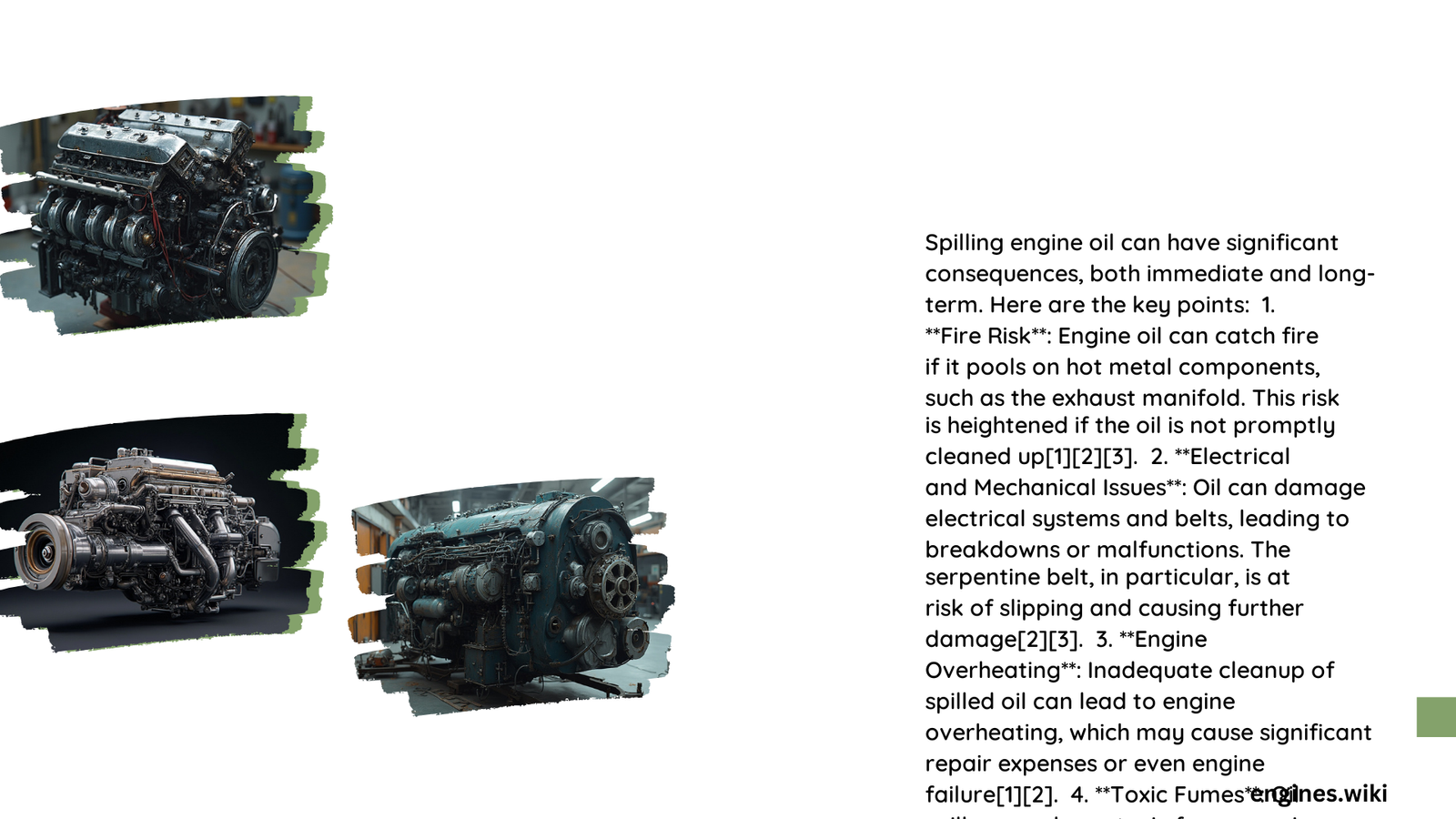Engine oil spills are far more than just a minor inconvenience. When oil escapes from your vehicle, it triggers a cascade of potential environmental, mechanical, and health risks that can lead to significant damage. From contaminating soil and water ecosystems to potentially causing severe engine component failure, a seemingly small spill can have far-reaching consequences that extend well beyond the immediate area of the accident.
What Happens When Engine Oil Spills?
How Serious Are the Immediate Consequences?
Engine oil spills can create multiple critical problems:
| Impact Area | Potential Consequences | Severity Level |
|---|---|---|
| Vehicle Engine | Performance reduction | High |
| Environmental | Ecosystem contamination | Very High |
| Health Risks | Toxic chemical exposure | Moderate to High |
Direct Vehicle Performance Risks
When engine oil spills, several immediate risks emerge:
- Potential Engine Damage: Hot engine components can cause oil to burn, creating smoke and reducing performance
- Lubrication Loss: Reduced oil levels compromise critical engine part protection
- Overheating Potential: Insufficient lubrication increases friction and temperature
What Environmental Damage Can Occur?
Engine oil contains numerous toxic chemicals that pose significant environmental threats:
- Soil Contamination
- Prevents plant growth
- Disrupts microorganism ecosystems
-
Reduces soil fertility
-
Water Pollution
- Creates toxic barriers on water surfaces
- Blocks oxygen exchange
- Harms aquatic life
How Do Chemical Compositions Impact Risks?
Engine oils typically contain:
– Hydrocarbons
– Heavy metals
– Additives and detergents
These components make spills particularly dangerous, as they:
– Resist natural degradation
– Accumulate in food chains
– Persist in environments for extended periods
What Are Cleanup Strategies?
Effective cleanup requires:
- Immediate Containment
- Use absorbent materials
- Prevent spread to water sources
-
Isolate contaminated areas
-
Professional Intervention
- Specialized cleaning services
- Proper disposal techniques
- Environmental remediation
What Legal and Financial Consequences Exist?
Potential repercussions include:
– Environmental violation fines
– Cleanup cost responsibilities
– Potential legal actions
How Can Spills Be Prevented?
Prevention strategies:
– Regular vehicle maintenance
– Careful oil handling
– Using proper transfer equipment
– Maintaining clean workspace
Safety Recommendations

- Wear protective gear
- Have cleanup materials ready
- Know local environmental regulations
- Contact professionals for large spills
Cost Implications
| Spill Size | Potential Cleanup Cost |
|---|---|
| Small Spill | $50 – $500 |
| Medium Spill | $500 – $2,000 |
| Large Spill | $2,000 – $5,000+ |
Final Thoughts
Engine oil spills matter significantly. They represent more than a simple mess—they’re potential environmental and mechanical disasters requiring immediate, responsible action.
